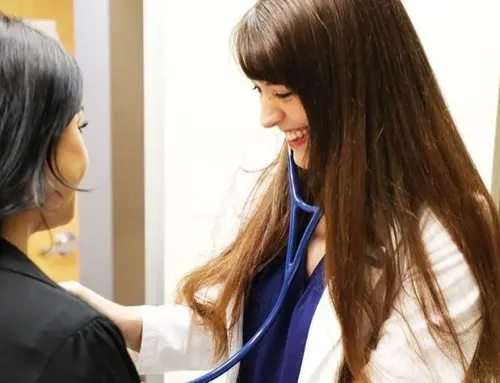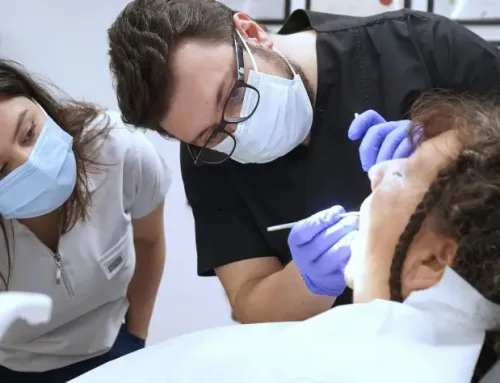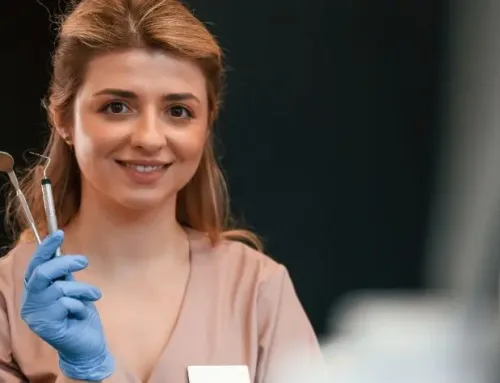How to Become a Clinical Research Scientist: Education and Career Tips

Ever wondered how to become a clinical research scientist and contribute to groundbreaking medical advancements? Clinical research scientists are essential to healthcare, designing and conducting studies that pave the way for innovative treatments and improved patient care. Their work shapes the future of medicine and transforms lives.
To excel in this rewarding field, you’ll need a strong educational background, practical research experience, and specialized skills in clinical trial design and data analysis. Programs like SCU’s Master of Science in Medical Science (MSMS) offer the perfect foundation, equipping aspiring clinical research professionals with the knowledge and tools to thrive in this impactful career.
What Does a Clinical Research Scientist Do? A Closer Look
Clinical research scientists are at the forefront of medical innovation, designing studies that pave the way for groundbreaking treatments and improved patient care. From developing life-saving medications to advancing global health, their work has a profound impact on healthcare.
Role and Responsibilities
Clinical research scientists take on diverse roles that require both scientific expertise and teamwork:
- Designing Clinical Trials: They create and manage studies to test new treatments, ensuring safety and efficacy.
- Data Analysis and Reporting: Analyzing complex datasets and publishing results in peer-reviewed journals to contribute to the body of medical knowledge.
- Collaboration: Working with multidisciplinary teams, including physicians, statisticians, and regulatory agencies, to ensure compliance and study success.
Their work is as collaborative as it is critical, bridging the gap between research and practical applications.
Work Settings
Clinical research scientists work in a variety of environments, each offering unique challenges and opportunities.
Pharmaceutical Companies
Scientists in these roles focus on developing and testing new drugs, from early research to large-scale clinical trials.
Academic Institutions
Here, research is often aimed at understanding diseases or improving treatment methodologies, with scientists also contributing to education and training.
Government Agencies
In these settings, scientists often work on public health initiatives, regulatory compliance, or disease prevention strategies.
Why This Career Matters
The work of clinical research scientists goes beyond the laboratory—it transforms lives. By developing new treatments and improving healthcare protocols, they play a crucial role in addressing global health challenges. Their research doesn’t just advance science; it offers hope to patients and families worldwide, demonstrating the true power of medical innovation.
Whether in a pharmaceutical lab or a university research center, clinical research scientists make a lasting impact on the future of healthcare, combining passion with purpose to drive meaningful change.
Education Pathway to Becoming a Clinical Research Scientist
Becoming a clinical research scientist is a rewarding journey that combines academic achievement, hands-on experience, and a passion for discovery. Understanding the educational pathway to this career is essential for building the foundation needed to excel in the field.
Step 1: Earn a Bachelor’s Degree
The first step toward a career in clinical research is obtaining a bachelor’s degree.
- Recommended Majors: Fields like biology, biochemistry, and chemistry provide essential knowledge in life sciences.
- Key Coursework: Focus on classes in research methods, statistics, and lab sciences to build critical analytical and practical skills.
A strong undergraduate education lays the groundwork for more advanced training and specialization.
Step 2: Pursue Advanced Education
Master’s Degree
A master’s degree, such as SCU’s Master of Science in Medical Science (MSMS), offers specialized training that bridges foundational sciences with advanced research methodologies. This program is an excellent stepping stone for aspiring clinical research scientists, equipping students with the knowledge and practical skills to excel in the field.
- Comprehensive Medical Sciences Curriculum: Our MSMS program mirrors the rigor and pace of a traditional first year of medical school. You’ll dive into subjects like anatomy, physiology, pathology, and biochemistry, gaining the advanced understanding essential for research roles.
- Real-World Application: The program includes opportunities to tackle clinical scenarios, allowing students to apply their knowledge to healthcare challenges and build confidence in their problem-solving abilities.
- Flexible Learning Options: Choose between an 11-month hybrid remote program, or a 20-month online program. These flexible formats make it possible to balance education with work or personal commitments.
By enrolling in SCU’s MSMS program, you’ll not only strengthen your academic credentials but also gain the critical tools needed to stand out in clinical research. This program prepares you to tackle the complexities of medical science, paving the way for impactful contributions to the field.
Step 3: Gain Practical Experience
Education alone isn’t enough—practical experience is crucial to becoming a skilled clinical research scientist.
- Internships: Internships provide exposure to research environments and introduce you to essential procedures.
- Research Assistant Roles: Working as a research assistant allows you to contribute to ongoing studies while learning from experienced professionals.
- Clinical Coordinator Positions: These roles teach project management, regulatory compliance, and patient interaction, key components of clinical research.
Hands-on experience helps bridge the gap between theoretical knowledge and real-world applications, setting you apart in a competitive field.
Becoming a clinical research scientist requires dedication to both education and practical experience. By following this pathway, you’ll gain the skills and expertise needed to make a meaningful impact in medical research and healthcare innovation.
Top Skills to Master for a Career in Clinical Research
A career in clinical research requires more than just academic knowledge. Clinical research scientists must master a wide range of skills, from technical proficiency in lab techniques to effective communication with diverse teams. Let’s explore the key abilities that define success in this impactful field.
Technical Skills
Being technically proficient is at the heart of clinical research, ensuring scientists can navigate complex studies and generate reliable results:
- Laboratory Techniques: Master methods like PCR, cell culture, and microscopy to handle biological samples effectively.
- Data Analysis Tools: Gain expertise in statistical software like SPSS, R, or SAS to interpret and present data accurately.
- Advanced Technology: Stay up to date with cutting-edge tools and platforms used in modern research labs.
These skills form the backbone of a clinical research scientist’s toolkit, enabling precise experimentation and analysis.
Critical Thinking and Problem-Solving
In clinical research, no two studies are the same. The ability to think critically and solve problems is crucial for overcoming unexpected challenges and designing robust studies. From troubleshooting procedural issues to interpreting complex results, these skills ensure that researchers can adapt and excel in a dynamic field.
Communication Skills
Clear and effective communication is essential for success in clinical research.
- Report Writing: Craft comprehensive reports that detail methodologies, findings, and conclusions.
- Presenting Findings: Share research outcomes with stakeholders, colleagues, and the broader scientific community.
- Collaboration: Communicate seamlessly with interdisciplinary teams, including statisticians, physicians, and regulatory agencies.
Strong communication ensures that your research not only makes an impact but also reaches the right audiences.
Regulatory Knowledge
Clinical research is governed by strict guidelines to ensure safety and ethical practices. Familiarity with FDA regulations and ethical standards is a must. Understanding these frameworks helps scientists design studies that meet regulatory requirements and maintain the highest standards of integrity.
Career Tips for Aspiring Clinical Research Scientists
Embarking on a career as a clinical research scientist requires more than just academic knowledge—it’s about building connections, honing your skills, and staying ahead of industry advancements.
Build a Strong Resume
A well-crafted resume can set you apart in a competitive field like clinical research:
Highlight Research Experience: Include internships, research assistant roles, or independent projects that demonstrate hands-on expertise.
Relevant Coursework: Mention specific classes in areas like biostatistics, clinical trial design, or data analysis.
Certifications: Showcase any certifications, such as GCP training or clinical research credentials, to validate your knowledge.
Your resume should tell a compelling story of your qualifications and enthusiasm for clinical research.
Network in the Industry
Success in clinical research often hinges on the connections you make. Joining professional organizations like the Association of Clinical Research Professionals (ACRP) or attending conferences opens doors to mentorship, job opportunities, and the latest industry insights. Building relationships with seasoned professionals can also help you navigate your career path more effectively.
Pursue Certifications
Certifications are a powerful way to demonstrate your commitment and expertise:
- Certified Clinical Research Associate (CCRA): Focused on monitoring and overseeing clinical trials.
- Certified Clinical Research Coordinator (CCRC): Geared toward professionals coordinating trial operations.
Earning these credentials shows employers you’re serious about your career and equipped with industry-standard knowledge.
Stay Updated on Industry Trends
The field of clinical research is constantly evolving, with new methods, technologies, and regulations shaping the landscape. Staying informed through journals, webinars, and professional development courses ensures that your knowledge remains current. By staying adaptable and proactive, you’ll maintain a competitive edge in this dynamic industry.
With these tips, you’ll be well on your way to a thriving career as a clinical research scientist, ready to make meaningful contributions to the advancement of medicine.
Your Next Steps with SCU: Paving the Path to Clinical Research Success
Have you ever wondered how to become a clinical research scientist and make a meaningful impact on healthcare advancements? This article outlined the essential steps—building a strong educational foundation, gaining practical experience, and mastering critical skills. As the field evolves, staying ahead requires dedication, strategic preparation, and continuous learning.
SCU’s Master of Science in Medical Science program is designed to help you stand out, providing advanced education, flexibility, and personalized support. Take control of your career today by exploring our program and discovering how we can help you achieve your dreams. Ready to start? Learn more about our admissions requirements and apply now to begin your journey!
FAQs
How to become a clinical research scientist?
To become a clinical research scientist, start with a degree in biology or chemistry, gain research experience, and pursue advanced education, like a master’s or PhD, to build expertise in clinical trial design, data analysis, and regulatory standards.
What degree is needed to become a clinical research scientist?
A bachelor’s degree in a life science field is the minimum requirement. However, many professionals pursue a master’s or doctoral degree to gain advanced knowledge and increase career opportunities in research or leadership roles.
How long does it take to become a clinical research scientist?
The timeline varies, but it typically takes 4 years for a bachelor’s degree and an additional 2–6 years for advanced degrees, depending on whether you pursue a master’s or PhD.
What skills are essential for clinical research scientists?
Key skills include strong analytical abilities, proficiency in data analysis tools, understanding of clinical trial design, and effective communication for presenting findings and collaborating with multidisciplinary teams.
How can SCU’s Master of Science in Medical Science (MSMS) program help?
Our MSMS program provides advanced training in medical sciences and research methodologies, preparing you for clinical research roles by strengthening your academic foundation and equipping you with practical research experience.
Related Posts




